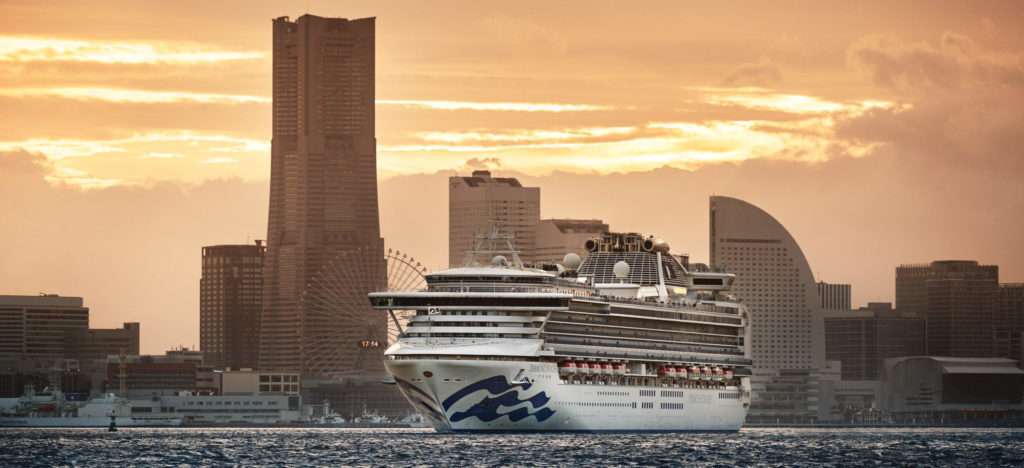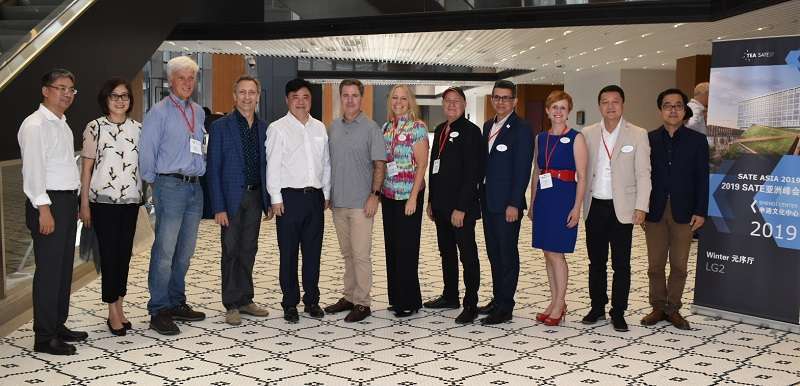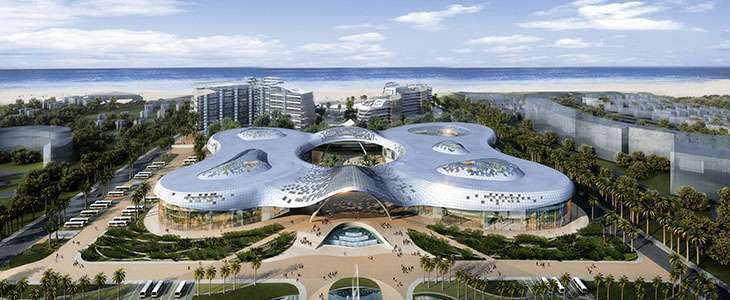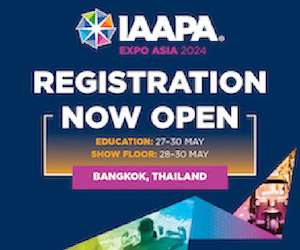by Joe Kleiman, InPark News Editor
ABOVE: Tokyo, host city for 2020 Summer Olympiad. Courtesy International Olympic Committee.
International restrictions on travel
As Mainland China was preparing to celebrate its New Year, a deadly virus began to spread around the country. The attractions and tourism industry was immediately affected [see InPark online article “China’s attraction industry feels impact of viral outbreak”]. One of the responses was to close all public spaces where crowds gather, including theme parks, zoos, aquariums, museums, and other attractions. It remains to be seen how things will play out operationally and financially in the longer term.
Shortly after the shutdown of China’s tourism industry, the World Health Organization announced a name for the novel coronavirus outbreak – COVID-19. A number of nations placed restrictions on travel to China, with the U.S. State Department raising its travel advisory level on February 2 to its highest level – “Do Not Travel.”
As a precautionary measure, a number of international conferences, festivals, and sporting events scheduled to take place in China, Macao, and Hong Kong have been either postponed, canceled or relocated to other countries, including Formula 1’s Chinese Grand Prix in Shanghai, the PGA Tour China, Art Basil Hong Kong, the Hong Kong International Film Festival, and the China Amusement Park Association’s Beijing Attractions Expo.
The International Olympic Committee (IOC) relocated a boxing qualifying event for the Tokyo Olympics to Amman, Jordan. The event had originally been scheduled to take place in Wuhan, China, considered to be the source of COVID-19. The IOC is also monitoring the virus and its potential impact on the next two Olympic Games, Tokyo in 2020 and Beijing in 2022.
In addition to those from mainland China, travel restrictions have also been placed by a number of nations on visitors from the autonomous regions of Macao and Hong Kong, with Taiwan instituting a travel ban on arrivals from all three territories. At midnight on February 20, at the exact same moment a 15-day mandatory closure of its casinos was lifted, Macao instituted a mandatory quarantine at two newly operational facilities for visitors from COVID-19 infected areas. In Hong Kong, the border with mainland China remains open, although all passing through are required to undergo a 14-day quarantine. In a recent development, the Walt Disney Company has agreed for vacant land adjacent to the Hong Kong Disneyland theme park to be used for construction of new quarantine facilities.Disney has determined that the long-term closure of its parks in Hong Kong and Shanghai will result in a loss of $320 million for the current quarter.
Cruise Industry

Near Tokyo, the Diamond Princess cruise ship, owned by Carnival Corporation was quarantined at the Port of Yokohama due to a COVID-19 outbreak onboard. The situation has been closely covered in the mainstream press. There are concerns what an outbreak in Japan could mean not only for the country’s residents, but for those athletes and guests attending the Tokyo Olympic and Paralympic Games, which are scheduled to begin in July. With a cost of more than $25 billion, the economic impact of the Games are also at risk.
Elsewhere within the cruise community, the World Dream, operated by Dream Cruises, a subsidiary of Genting-owned Resorts World, underwent a four day quarantine in the Port of Hong Kong after three former passengers tested positive for the virus. The Holland America ship Westerdam, which departed Hong Kong on February 1, docked in Cambodia after being turned away by ports in Thailand, the Philippines, Japan, and Taiwan.
In light of the recent incidents on cruise ships, the Cruise Line International Association (CLIA), which represents twenty-seven of the world’s leading cruise lines released the following guidelines:
• CLIA Members are to deny boarding to all persons who have traveled from, visited or transited via airports in China, including Hong Kong and Macau, within 14 days before embarkation.
• CLIA Members are to deny boarding to all persons who, within 14 days before embarkation, have had close contact with, or helped care for, anyone suspected or diagnosed as having COVID-19, or who is currently subject to health monitoring for possible exposure to COVID-19.
• CLIA Members are to conduct preboarding screening necessary to effectuate these prevention measures. Enhanced screening and initial medical support are to be provided, as needed, to any persons exhibiting symptoms of suspected COVID-19.
International theme parks and attractions
Various international parks and attractions, particularly in Asia, have instituted a number of different approaches to dealing with COVID-19 threats. In Japan, Oriental Land Company’s Tokyo Disney Resort has required cast members to wear face masks since late January. At Resorts World Sentosa, home of Universal Studios Singapore, a casino employee tested positive for the virus in early February. Since then, the resort has instituted a number of precautionary measures, including increased sanitation, thermal monitoring of guests at casino and attraction entrances, and temperature monitoring of each resort employee at least once daily.
While not every nation or international park is directly impacted by the COVID-19 virus, the impact can be seen fiscally, with a large decrease in visitation from Chinese travelers. The Malaysian Association of Amusement Theme Park & Family Attractions (MAATFA) reports that attendance at its member attraction is down 80% for the first twenty days of February.
The International Association of Amusement Parks and Attractions (IAAPA) has made resources on the coronavirus available to its members, including a webinar on COVID-19 protocols for visitor attractions. The association will make a determination in March if it will proceed with the IAAPA Expo Asia, scheduled for Macao in June, or change the location.

The Themed Entertainment Association (TEA), which has numerous members both based and working in China and throughout the Asia Pacific region, is also closely monitoring the COVID-19 situation. In a prepared statement, International Board President Michael Blau and Chief Operating Officer Jennie Nevin, remarked:
Together with the TEA International Board and TEA Headquarters staff we are working to determine how TEA – in its capacity as an international membership association – can best respond to and serve the needs of membership and the industry as the situation continues to play out. We’re staying up to date on information shared by the World Health Organization. We are in regular communication with our leaders and members around the world. We are dedicated to responding appropriately and to sharing relevant information in a timely manner.
Over the course of the next weeks and months, we’ll continue to facilitate networking and dialogue as much as possible, in safe and accessible ways. During this challenging period, fostering communication between member companies and preserving the networking opportunities, international goodwill and collaborative team spirit that are core to TEA culture and mission will help reinforce the strength of our global business community.
Hainan Reopens

Among the first governments to declare a health emergency was the island province of Hainan. On February 20, China Duty Free Group (CDF) reopened its duty free luxury goods stores on Hainan, including its flagship CDF Mall (above), the largest duty free store in the world. At the same time, the stores, restaurants and hotels of the Atlantis Sanya Resort reopened, although the resort’s waterpark, aquarium, and dolphinarium remain closed.
While the the COVID-19 outbreak will have long-term implications on both the Chinese and global economies, especially within the tourism sector, it will also have both short and long-term ramifications on how attractions operate. Much like the response to the events of September 11. 2001 permanently altered the transportation landscape and instituted new safety measures for the global attractions industry, we will begin to see a reevaluation of how we approach public health in tourism environments on a long-term basis.






